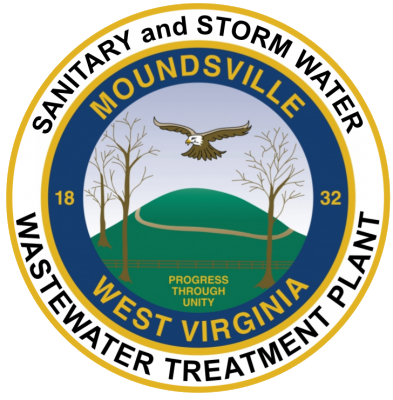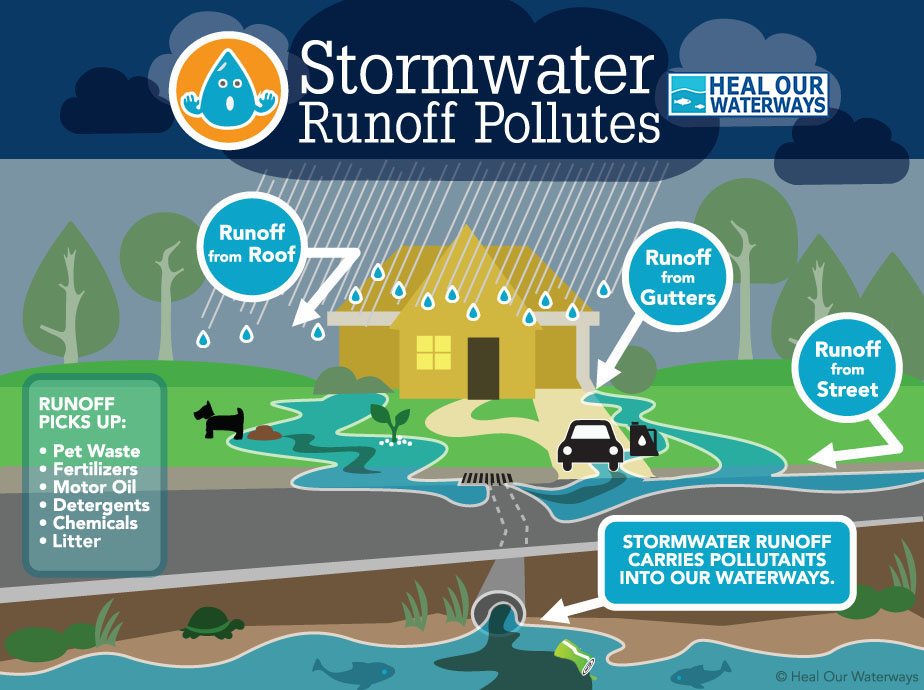What is stormwater runoff?
Stormwater is water that originates from precipitation events, i.e. rain, snow, sleet, hail, etc. Stormwater runoff is the water from a precipitation event that “runs off” the land instead of seeping into the ground. Runoff is typically routed to the nearest storm drain, which then flows untreated to the nearest stream.
How does stormwater runoff affect water quality?
Natural landscapes such as forests, grasslands, and wetlands allow rain and snow melt to infiltrate into the ground while filtering out pollutants. In contrast, developed areas typically have a greater amount of impervious surface and therefore rely on the City’s storm sewer system to carry runoff from roofs and paved areas to our creeks and rivers. Urban runoff has a tendency to become concentrated with pollutants such as oil and grease from motor vehicles, pesticides and nutrients from lawns and gardens, and heavy metals from roof shingles, motor vehicles and other sources. Yard debris and litter also contribute to stormwater pollution.
Ways you can help reduce stormwater pollution...
- Never dump anything down a storm drain
- Use lawn chemicals sparingly
- Never mow or sweep grass clippings onto street
- Take your vehicle to a car wash or wash in the grass
- Check car for leaks and recycle your motor oil
- Build a rain garden!


 Stormwater Runoff Pollutes
Stormwater Runoff Pollutes